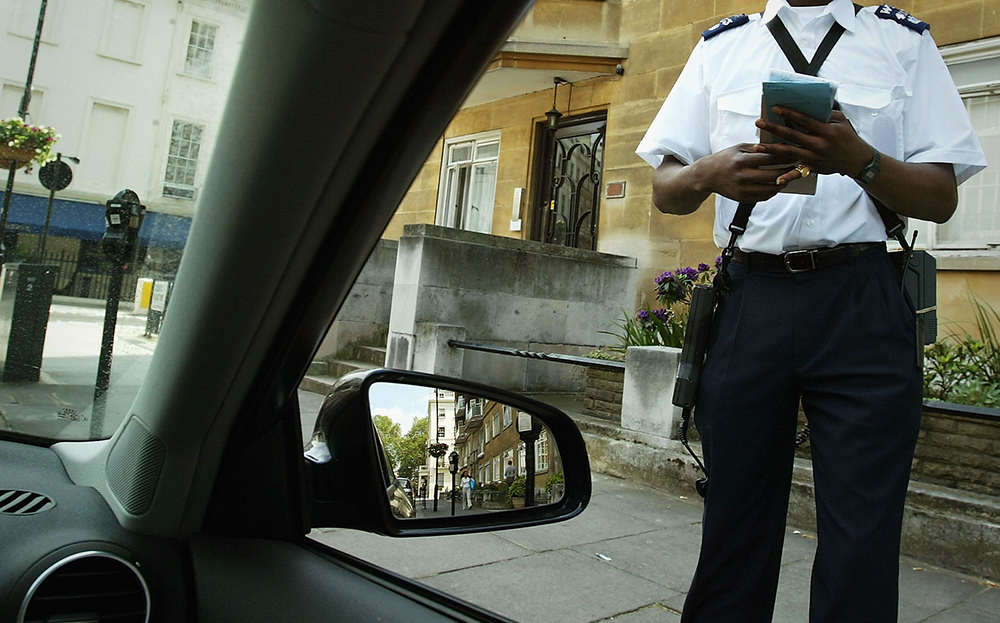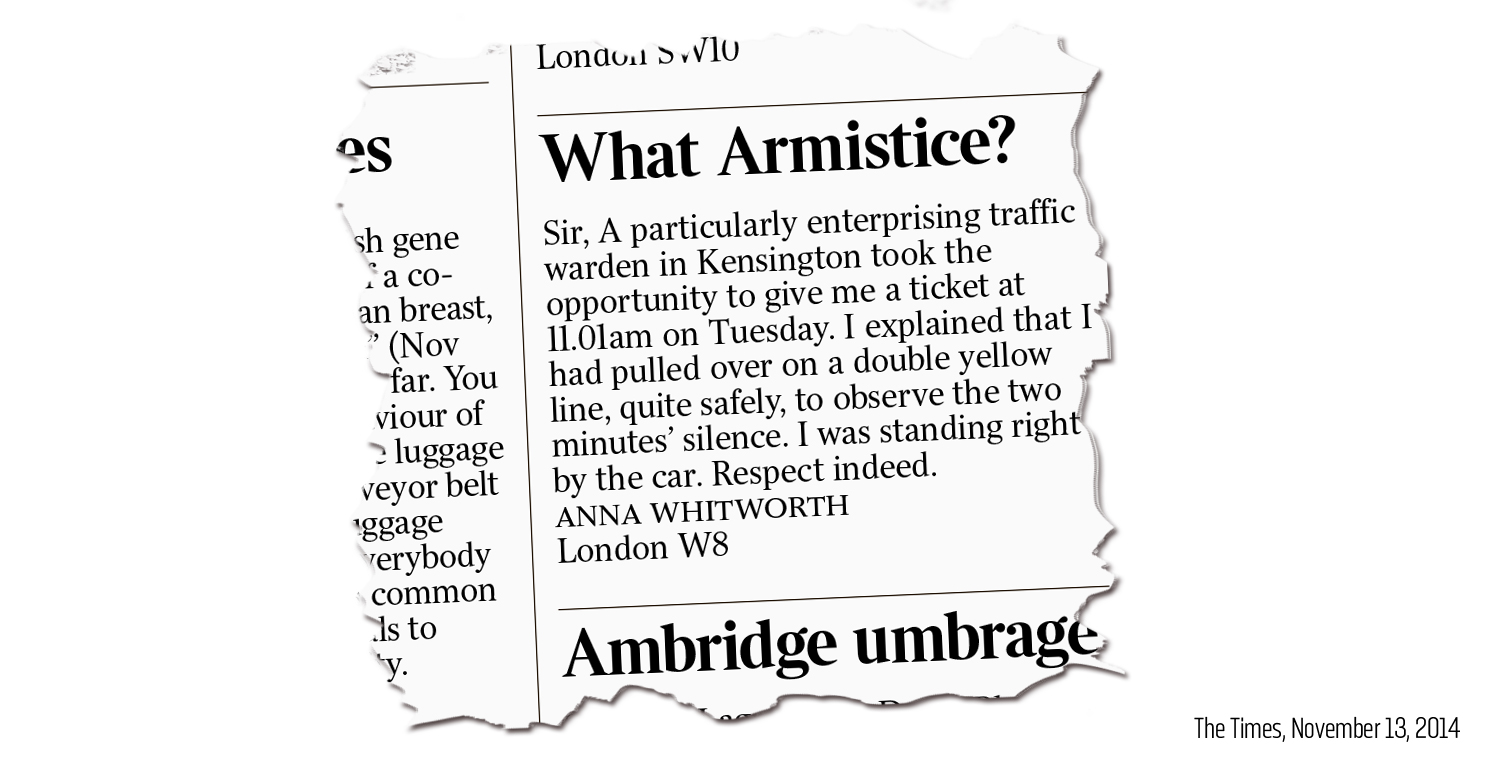News: Driver receives parking ticket while observing two-minute silence on Armistice Day
Ticket officer 'unaware of traditional show of respect'

RULES ARE rules. That was the view of the parking warden who issued a ticket on November 11 to a driver who had pulled over to observe the Armistice Day two-minute silence.
Anna Whitworth, 69, a relative of a celebrated First World War naval captain, had pulled over onto double yellow lines in a quiet side street in the London borough of Kensington and Chelsea to observe the silence. She had planned to be inside but found herself still on the road as the hour came.
Search for and buy your next car on driving.co.uk
“I wanted to respect the two minutes’ silence, so I found a street off Kensington High Street to park,” she told The Times. “I stopped on a double yellow line and got out to stand by my car as the clock was chiming on the car radio.
“As I stood there, a ticket officer came up to my car, making noises that I couldn’t park there. I told him I was only observing the silence for Armistice Day for those fallen in war, but he just looked completely blank. I told him he should have some respect, but he didn’t respond and said instead that he was going to give me a ticket. I thought, ‘Fine – go ahead’, because it was so ridiculous.”
The ticket placed on Whitworth’s windscreen shows the time 11.01am.
“It was so daft and unreasonable,” she said. “I asked him to take a photo of me standing by the car for proof of what I was doing but I’m not sure he did.”
Whitworth wrote a letter to The Times about the incident.
The council has taken a more lenient view since the issue was brought to light. “The two-minute silence is a solemn event, which understandably many people wish to observe,” it said. “The council would certainly wish to take these circumstances into account and would encourage this motorist to contact her parking office.”
Captain Reginald Salomans, Whitworth’s great-uncle, went down with his ship in the Dardanelles during the Gallipoli campaign in 1915. The story came to light in February 2012 when a historian stumbled across a letter in a military shop written to Captain Salomans’s father, Colonel Sir David Lionel Salomans, a wealthy baronet from Tunbridge Wells, detailing how his son had made sure as many of his men as possible escaped the ship before he did.
The captain was part of a regiment of engineers who mostly came from Tunbridge Wells and Southborough in Kent. His ship had collided with a much larger Royal Navy vessel in darkness and sunk immediately, with the loss of 128 lives.





